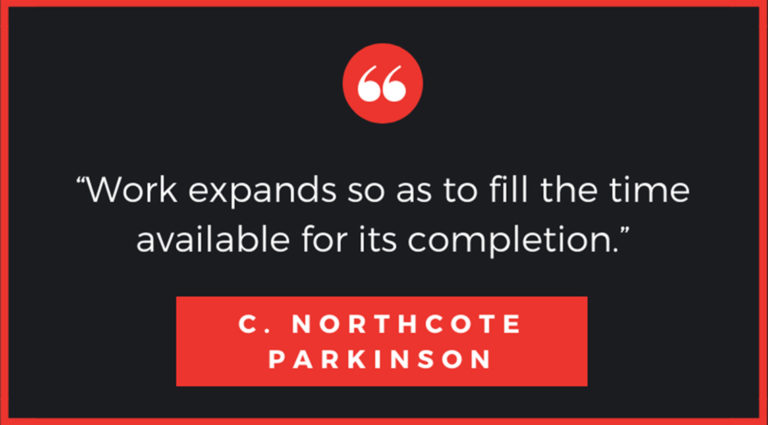Our solutions cover the entire employee lifecycle from selection through to development, focusing on individuals, teams and organisational solutions.
Parkinson’s Law in the Age of the Pandemic

*This post was authored by Dr Robert Hogan and originally appeared on Hogan Assessments.
C. Northcote Parkinson (1909—1993) was a British naval historian, lecturer, and novelist; he formulated his famous law in an essay in The Economist in 1955. Parkinson’s law was intended to describe the behavior of managers in the British Navy and British government, but it is also a pretty good description of work in most organisations. The July 11th, 2020 issue of The Economist provides an update of Parkinson’s astute generalisation about organisational behavior.
The law itself states: “Work expands so as to fill the time available for its completion.” I think there are three psychological explanations for Parkinson’s law. The first is the human tendency to procrastinate, to put off doing things until the last minute. Procrastination itself has several causes including fear of failure, laziness, and, of course, passive aggression (“Don’t rush me!”). But the point is that procrastination is one way to explain Parkinson’s law. A second explanation for Parkinson’s law is the fact that if people complete a task promptly, they risk being assigned a second, and even more tedious, task. The reverse of this situation is, of course, “If you want to get something done, find a busy person.” A third explanation for Parkinson’s law is “impression management”; most people understand the importance of being seen to be working while at work. In this context, it makes sense to extend the duration of each task. Parkinson pointedly noted that managers help other managers look busy by shuffling papers back and forth for review, commentary, and alignment.
However, when people are working at home, there is a clear temptation for some to figure out the minimum level of effort they can get away with and still get by. There is no need to drag out each task; people can just do their work, spend the rest of the day doing as they please, and then turn in their work just before the deadline. For these people, The Economist suggests rewriting the law as follows: “For the unconcerned, when unobserved, work shrinks to fill the time required.”
For hard-charging people, working at home leads to a different outcome. Wracked by guilt and anxiety, they work even harder than before. For these people, the law reads: “For anxious home workers, work expands to fill all their waking hours.”
But Parkinson was talking about more than procrastination, he was talking about the fact that managers, in order to advance, argue that the size of their workload requires that they hire more people. They evaluate themselves, and they are evaluated, based on the number of their direct reports. But hiring more people doesn’t lead to greater productivity, just a larger payroll. In addition, like everyone else, managers need to appear busy. How does that work out during lockdown? The answer is to organise Zoom meetings. And this leads to a final revision of Parkinson’s law: “In lockdown, Zoom expands to fill all of the manager’s available time.”
The slackers will avoid the Zoom meetings and the hard charging people will attend all of them. Moreover, in order to be noticed at a Zoom meeting, people must be seen and heard, which makes Zoom meetings even longer than normal meetings. And ping-ponging between Zoom meetings is the digital version of the paper shuffling mangers engaged in during Parkinson’s day.
I close with two final points. First, the degree to which people work hard and are productive is a function of their personality not their work location. And second, smart businesspeople are already expressing doubts about the wisdom of working from home.
Latest posts
-
Apr 08, 2024
PBC and Hogan Announce Updates to the Industry’s Most Robust 360 Assessment
-
Apr 03, 2024
Getting Assessment Advice from ChatGPT
-
Mar 25, 2024
Recognition as one of the Top Organisational Development Services Provider In Australia
Resources
Tap into our extensive collection of research, sample reports, case studies and thought leadership.
